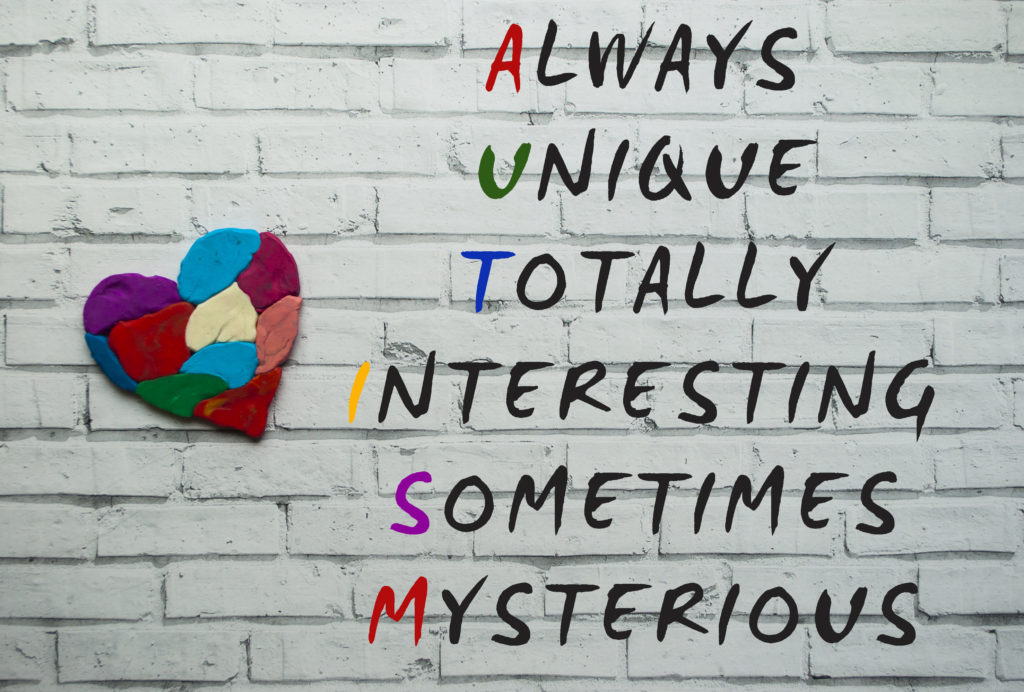
Autism has become a well-known diagnosis in recent years. Though some people seem to be against this sort of labelling, and the general increase in different label of mental conditions, a study out of the University of Portsmouth shows why this is actually a good thing.
What they found is that those who learned they were autistic when they were younger felt happier about their lives. This is probably due to many reasons – generally it is empowering because it clarifies how one is feeling and engages with the world. This enables them to find better ways to deal with this and also explain this to themselves and others. Not only that, but other resources may be available or the understanding of others such as teachers or peers at school.
However, though it is better to be diagnosed, and informed earlier, they also found that receiving a diagnosis in adulthood was also empowering and accompanied by a sense of relief. The takeaway is that getting a diagnosis is important and being informed of this, in a suitable way, of course, is also important.
Of note is that women, who are less often diagnosed, or minority groups, or non-binary individuals, respond more positively to the diagnosis. It also shows that getting a diagnosis (and support) is important to increase life outcomes for those with autism.
Reference:
Tomisin Oredipe, Bella Kofner, Ariana Riccio, Eilidh Cage, Jonathan Vincent, Steven K Kapp, Patrick Dwyer, Kristen Gillespie-Lynch.
Does learning you are autistic at a younger age lead to better adult outcomes? A participatory exploration of the perspectives of autistic university students.
Autism, 2022; 136236132210867
DOI: 10.1177/13623613221086700
More Quick Hits
Your brain on near-death experiences
Near-death experiences have fascinated many people ever since they have been reported. And these experiences guide our view of how we die: the memories of your life passing in front of your eyes, the tunnel of light, the floating movement towards a bright light....
Social networks grow your brain
The headline is a bit “click baity” but it is what a group of researchers found. To be more specific they found in macaques (cute monkeys) in the wild that having more grooming partners grew different regions of the brain. Grooming is the primate version of having a...
What do creative brains look like?
We’d probably all be happy to be a bit more creative — though research into our own opinions show that many people do actually consider themselves to be above average in creativity. An obvious self-bias. This is where scientists who study creativity come in and find...
New gender biases discovered
There have been many studies on gender biases, and I have followed, written, and spoken about many of these biases over the years (over a decade actually) but two studies have just come out that caught my eye. One out of New York University focused on gender natural...
Growth of your brain over your life
So, we all know that our brain grows very quickly as babies and children and then after a certain age, younger than some of us may like to think, there begins a slow decline. But precisely what and how is the question. Well, this is a question that an international...
How to reduce loneliness
I have reported multiple times on loneliness during the pandemic – mostly because interest and research into loneliness has taken a large uptick. I have also reported on how to combat this and was happy to see that a piece of research just out proved what I had...
COVID on the Brain
Many COVID-19 patients have reported various neurological symptoms – the well-known brain fog, but also headaches and decreased cognitive function over months and extended periods of time. This even without serious infection or hospitalization. The research seems to...
Life satisfaction after work related to personality traits
As many of you know I have done plenty of work into personality and so found this study interesting. Dusanee Kesavayuth of Kasetsart University in Bangkok, Thailand analysed data from 2,000 adults aged between 50 and 75 in the British Household Panel Survey and found...
Unique regulation of brain in yoga practitioners
Quick HitsDaily brief research updates from the cognitive sciences es, you yoga practitioners knew you were special and here is the science to prove it! In this older study I came across (2018) participants were recruited to see how they dealt with...
Neurodivergence and the lonely brain
Quick HitsDaily brief research updates from the cognitive sciences eurodivergence is term that describes those that are not “neurotypical” such as those with autism and ADHD. In the surge of research into loneliness spurred by the pandemic it has...










